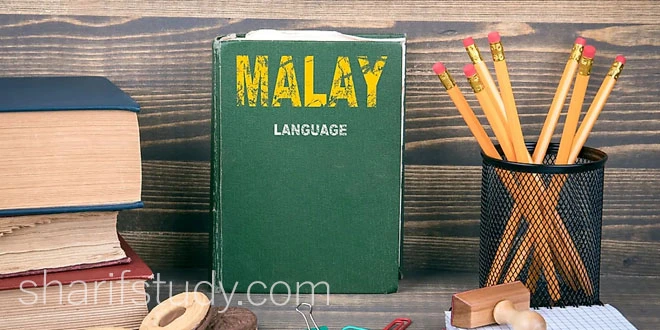Malaysia is home to a fascinating mix of languages that reflect its multicultural population. The country’s three main ethnic groups—Malay, Chinese, and Indian—along with numerous indigenous communities, each bring their unique languages into the cultural tapestry. This diversity makes Malaysia a truly multilingual society, where language serves not just as a tool for communication but also as an integral part of the national identity.
For students coming to study in Malaysia, this linguistic diversity can be both an opportunity and a challenge. While Malay, the national language, is widely spoken, English also plays a significant role, especially in education. Additionally, regional languages like Mandarin, Tamil, and indigenous languages add layers to the linguistic landscape.
Malay: The National and Official Language
Importance of Bahasa Malaysia in Daily Life
Bahasa Malaysia (often referred to simply as Malay) is the official and national language of Malaysia. It is spoken by the majority of the population and is the main language used in government, media, and education. As a student in Malaysia, you’ll encounter Malay in everyday interactions, from ordering food at a local restaurant to navigating public transportation.
Bahasa Malaysia in the Educational System
In Malaysia, Malay is the medium of instruction in public schools, though English is often used in higher education, particularly in private institutions. For international students, having a basic understanding of Malay can enhance your educational experience, allowing you to engage more deeply with local students and participate in cultural activities.
Influence of Malay on Other Languages in Malaysia
Malay has a significant influence on other languages spoken in the country. You’ll find many loanwords from Malay in Chinese, Tamil, and even English as it is spoken in Malaysia. This blending of languages is a reflection of the country’s history and its openness to external influences.
English: The Second Language
Role of English in Malaysian Education
English is considered the second language of Malaysia and is widely used, particularly in business, academia, and tourism. Most private universities and higher education institutions conduct their courses in English, making it essential for international students.
Importance of English for International Students
For international students, English proficiency is critical. Many programs, especially at the postgraduate level, are taught in English. Additionally, English is the language of instruction in many international schools, making it easier for students from non-Malay-speaking backgrounds to adjust.
Chinese Dialects in Malaysia
Mandarin Chinese
Mandarin is the most widely spoken Chinese dialect in Malaysia, particularly among the Chinese-Malaysian community. It is commonly used in Chinese-medium schools, businesses, and cultural organizations.
Cantonese and Other Chinese Dialects
Besides Mandarin, other dialects such as Cantonese, Hokkien, and Hakka are spoken by Chinese-Malaysians. These dialects are prevalent in different regions of Malaysia, contributing to the country’s rich linguistic diversity.
Chinese Language Schools and Their Impact
Chinese-medium schools in Malaysia play a key role in preserving these dialects, and they are often attended by students from Chinese-Malaysian backgrounds. As a result, international students may encounter multiple Chinese dialects in everyday life, particularly in urban areas.
Tamil and Other Indian Languages
Tamil as a Major Indian Language in Malaysia
Tamil is the predominant language spoken by the Indian community in Malaysia, particularly among those of South Indian descent. Tamil is also used in Tamil-medium schools, which are an important part of the Malaysian education system.
Other Indian Languages Spoken in Malaysia
In addition to Tamil, languages such as Telugu, Malayalam, and Punjabi are spoken by smaller segments of the Indian-Malaysian community. These languages add to the linguistic richness of the country and can be heard in various cultural and religious settings.
Indigenous Languages of Malaysia
Overview of Indigenous Communities in Malaysia
Malaysia is home to numerous indigenous groups, including the Orang Asli of Peninsular Malaysia and the various ethnic groups in Sabah and Sarawak. These groups speak a variety of indigenous languages that are unique to their communities.
Preservation of Indigenous Languages
Efforts to preserve indigenous languages are ongoing, as many of these languages are at risk of extinction due to globalization and the dominance of Malay and English. For students studying in Malaysia, engaging with these indigenous communities can provide insight into a lesser-known aspect of the country’s linguistic landscape.
Role of Multilingualism in Malaysian Society
Code-Switching in Malaysian Daily Life
One of the unique aspects of language in Malaysia is the practice of code-switching, where speakers switch between different languages or dialects within a single conversation. This is especially common in urban areas, where people are often fluent in multiple languages.
Language and Identity
Language is deeply tied to identity in Malaysia. For many Malaysians, being able to speak multiple languages is a source of pride and reflects their diverse cultural heritage. As a student, understanding this aspect of language can help you navigate social interactions more effectively.
Language Policies in Malaysia
National Language Policy
The Malaysian government’s language policy emphasizes the use of Malay as the national language while recognizing the importance of English and other languages. This policy is reflected in the educational system, where Malay is the primary language of instruction in public schools, but English is emphasized at higher levels of education.
Education and Language Policy
In higher education, particularly in private institutions, English is the main medium of instruction. This is part of Malaysia’s effort to remain globally competitive and attract international students.
Benefits of Learning Malay as a Foreign Student
Enhancing Your Study Experience by Learning Malay
For international students, learning Malay can significantly enhance your experience in Malaysia. While English is widely spoken, particularly in academic settings, knowing Malay will allow you to engage more fully with the local culture and build stronger relationships with locals.
Practical Tips for Learning Malay
Start by learning basic greetings and phrases, which will help you in everyday situations. Enroll in a language course or use language apps to build your proficiency. Many universities offer beginner-level Malay classes specifically for international students.
Language Courses and Resources in Malaysia
Malay Language Courses for Foreign Students
Many universities in Malaysia offer language courses for foreign students, often at beginner or intermediate levels. These courses focus on conversational Malay and are designed to help students integrate more easily into local life.
Language Apps and Tools
There are several apps and online platforms available for learning Malay, including Duolingo, Babbel, and Memrise. These tools provide a fun and interactive way to learn the language at your own pace.
University Language Centers
Some universities also have dedicated language centers that offer a range of language courses, including Malay, English, and other regional languages. These centers often provide additional support for international students looking to improve their language skills.
English Language Proficiency Tests in Malaysia
IELTS and TOEFL Requirements
Most universities in Malaysia require international students to demonstrate proficiency in English through standardized tests such as IELTS or TOEFL. These tests are used to assess your ability to communicate effectively in an academic environment.
University Language Support Services
Many universities offer language support services to help international students improve their English skills. These services include workshops, tutoring, and language labs, which are designed to help you succeed in your studies.
Cultural Influence on Language Use
How Culture Shapes Language in Malaysia
Malaysia’s rich cultural heritage has a profound influence on the way languages are spoken. Cultural practices, religious rituals, and traditional customs all contribute to the unique linguistic landscape of the country.
Festivals and Language Expression
During major festivals such as Hari Raya, Chinese New Year, and Deepavali, language plays an important role in expressing cultural identity and tradition. As an international student, participating in these festivals can provide valuable insight into the cultural significance of language in Malaysia.
Common Phrases and Greetings in Malay
Essential Phrases for Everyday Use
- Selamat pagi (Good morning)
- Terima kasih (Thank you)
- Apa khabar? (How are you?)
- Sama-sama (You’re welcome)
- Tolong (Please)
- Maaf (Sorry)
Language Etiquette and Politeness in Malaysia
When speaking Malay, politeness is key. Using honorifics and respectful language is important in formal situations. For example, addressing someone older than you as “Encik” (Mr.) or “Puan” (Mrs.) shows respect.
Challenges of Multilingualism in Malaysia
Balancing Language Diversity in Education and Media
One of the challenges Malaysia faces is balancing the use of multiple languages in education and the media. While Malay is the national language, there is a need to accommodate other languages in various sectors, particularly in education and entertainment.
The Struggle for Language Preservation
Preserving Malaysia’s linguistic diversity is an ongoing challenge. As globalization spreads, younger generations are increasingly adopting English as their primary language, which has led to concerns about the decline of indigenous and minority languages.
Conclusion: Embracing Malaysia’s Linguistic Diversity
The linguistic diversity of Malaysia is a reflection of its multicultural society. For international students, understanding the languages spoken in Malaysia is essential for both academic success and cultural immersion. By learning Malay and embracing the multilingual nature of the country, you will not only enhance your study experience but also gain a deeper appreciation for the rich tapestry of Malaysian life.
Frequently Asked Questions (FAQs)
1. What is the official language of Malaysia?
The official language of Malaysia is Bahasa Malaysia (Malay). It is the national language and is widely used in government, education, and daily communication across the country.
2. Do I need to know Malay to study in Malaysia?
While it’s helpful to know some basic Malay phrases for daily interactions, it is not a requirement for studying in Malaysia. Most universities, particularly private institutions, use English as the primary medium of instruction. However, learning Malay can enhance your overall experience and help you connect with locals more easily.
3. Is English widely spoken in Malaysia?
Yes, English is commonly spoken in Malaysia, especially in urban areas, higher education institutions, and the business sector. Many Malaysians are bilingual, speaking both Malay and English fluently, making it relatively easy for international students to communicate in English.
4. Are there language courses available for international students in Malaysia?
Yes, many universities and language centers in Malaysia offer Malay language courses specifically for international students. These courses range from beginner to advanced levels and are designed to help students integrate into Malaysian society more effectively.
5. What other languages are spoken in Malaysia besides Malay and English?
Malaysia is a multilingual country where a variety of languages are spoken, including Chinese dialects (Mandarin, Cantonese, Hokkien), Tamil, and indigenous languages. The diverse ethnic groups in Malaysia each contribute to the linguistic landscape of the country.
6. Is there a language proficiency requirement for studying in Malaysia?
Most universities in Malaysia require international students to demonstrate proficiency in English through standardized tests such as IELTS or TOEFL, especially for programs taught in English. However, proficiency in Malay is not typically a requirement for admission.
 SharifStudy Best way to Study in Malaysia
SharifStudy Best way to Study in Malaysia




